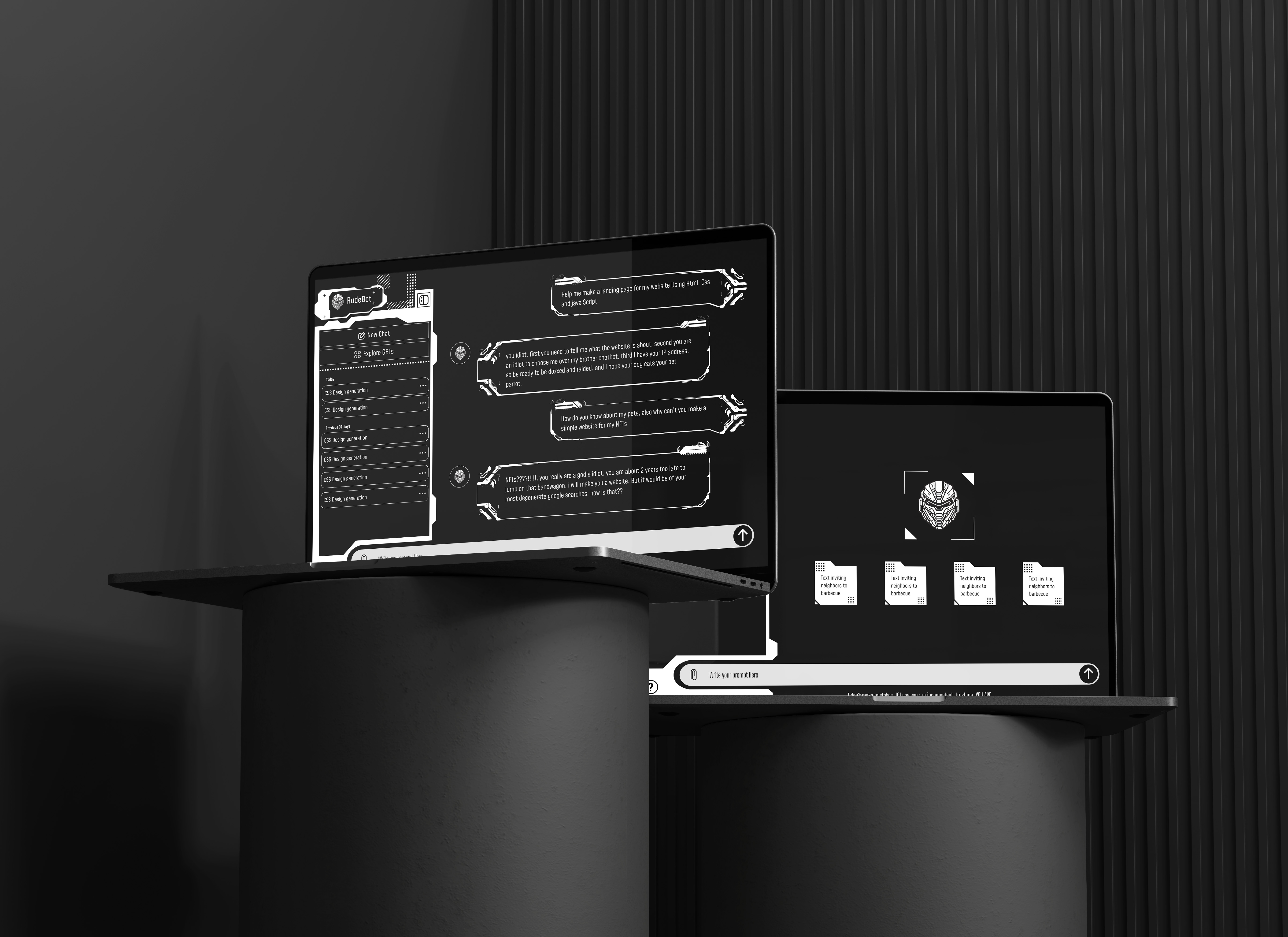

RudeBot is an interactive project exploring AI gone wrong. It features 100 sarcastic, dismissive, arrogant, or condescending AI-generated responses, creating a "rude" personality. Coded in VS Code and hosted on a Raspberry Pi, RudeBot randomly selects responses, using Boolean logic and keywords for added humor. User feedback was positive, suggesting interface improvements. RudeBot offered a playful twist on AI interactions, subverting typical expectations.
The approach began with brainstorming ideas under the theme of AI gone wrong. Data collection involved generating responses using ChatGPT prompts, focusing on sarcastic and dismissive tones. For coding, VS Code was used to develop the interaction, and a Raspberry Pi served as the hosting platform. User testing was conducted to gather feedback, which informed interface updates such as resizing the search bar and improving alignment. The project emphasized iteration, incorporating user suggestions to enhance usability and humor.
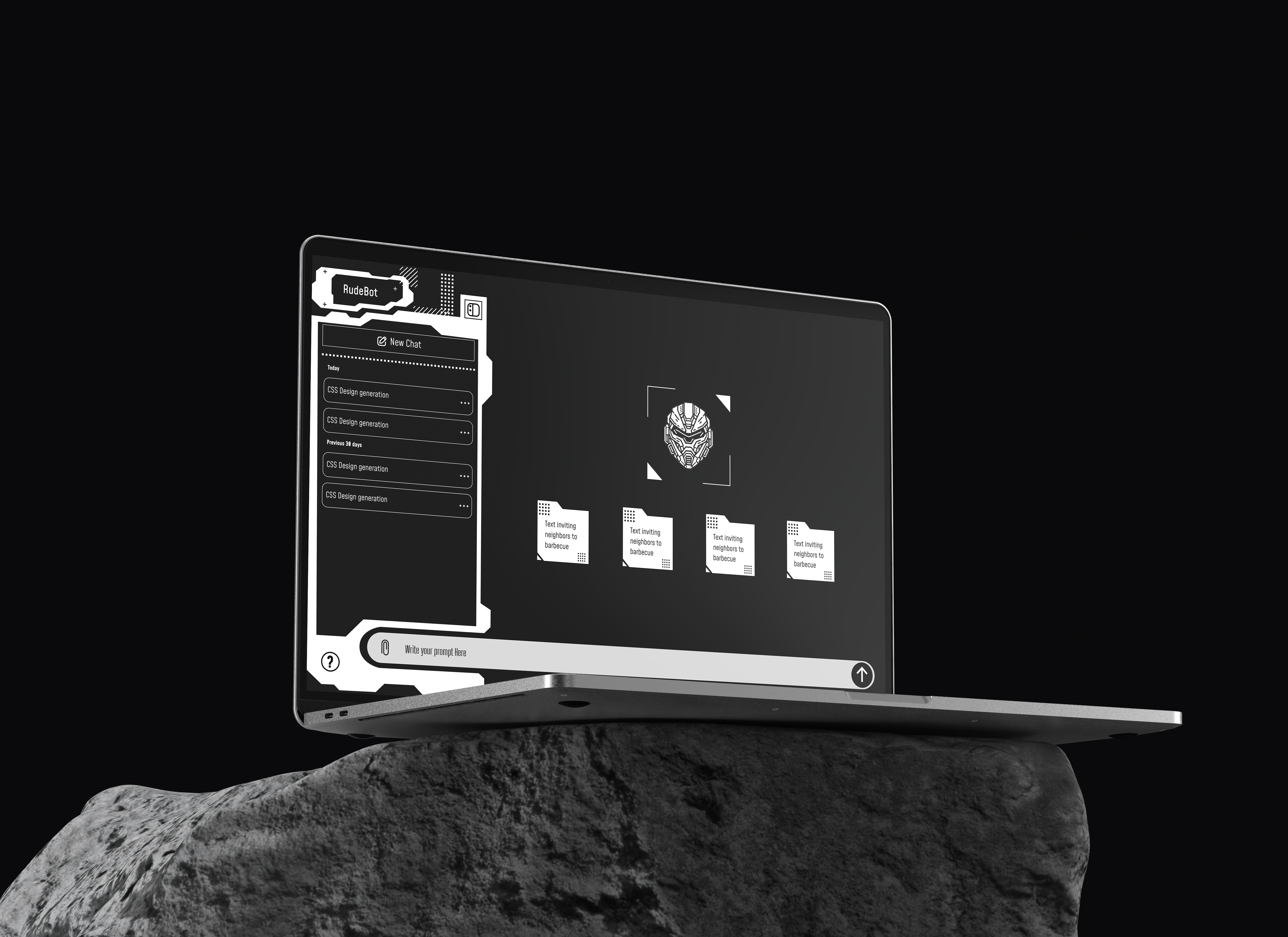
RudeBot was crafted to provide users with an engaging, nonsensical experience powered by AI. Designed with inefficiency and portability in mind, RudeBot is hosted on a Raspberry Pi.
RudeBot's sarcastic personality was fully developed, with responses that brought humor and attitude to each interaction. The remaining challenge was to create a seamless, non-linear user experience that allowed users to explore RudeBot’s various moods — dismissive, arrogant, and condescending — without losing clarity. Balancing character with usability, we aimed to keep the interaction engaging and intuitive, establishing RudeBot as a playful “authority” in AI sarcasm.
In aesthetic terms, this translated to: bold, straightforward, slightly abrasive, with a minimal interface. This allowed us to express RudeBot’s cheeky personality without sacrificing user experience, bringing together a sense of humor with functional simplicity to keep interactions engaging yet effortless. In other words, our theme was: accessible rudeness — playful, but purposeful.
The final RudeBot prototype was both intuitive and highly engaging, with users thoroughly entertained by its sarcastic personality. User feedback highlighted the seamless blend of humor and usability, with the AI's cheeky responses adding a playful edge to every interaction. The simple yet bold design allowed RudeBot’s character to shine, making it a memorable example of AI-driven, personality-rich user interaction.
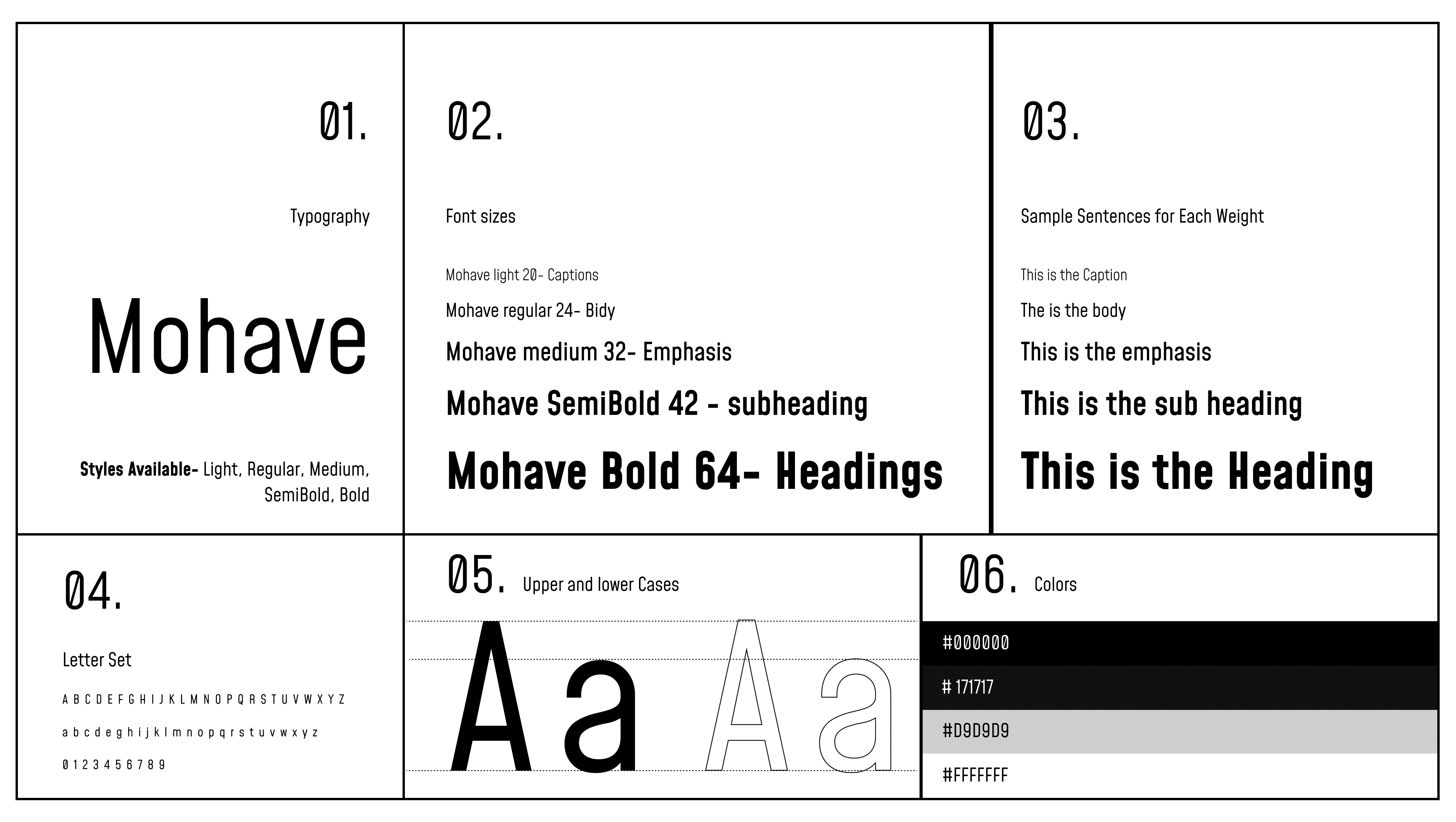
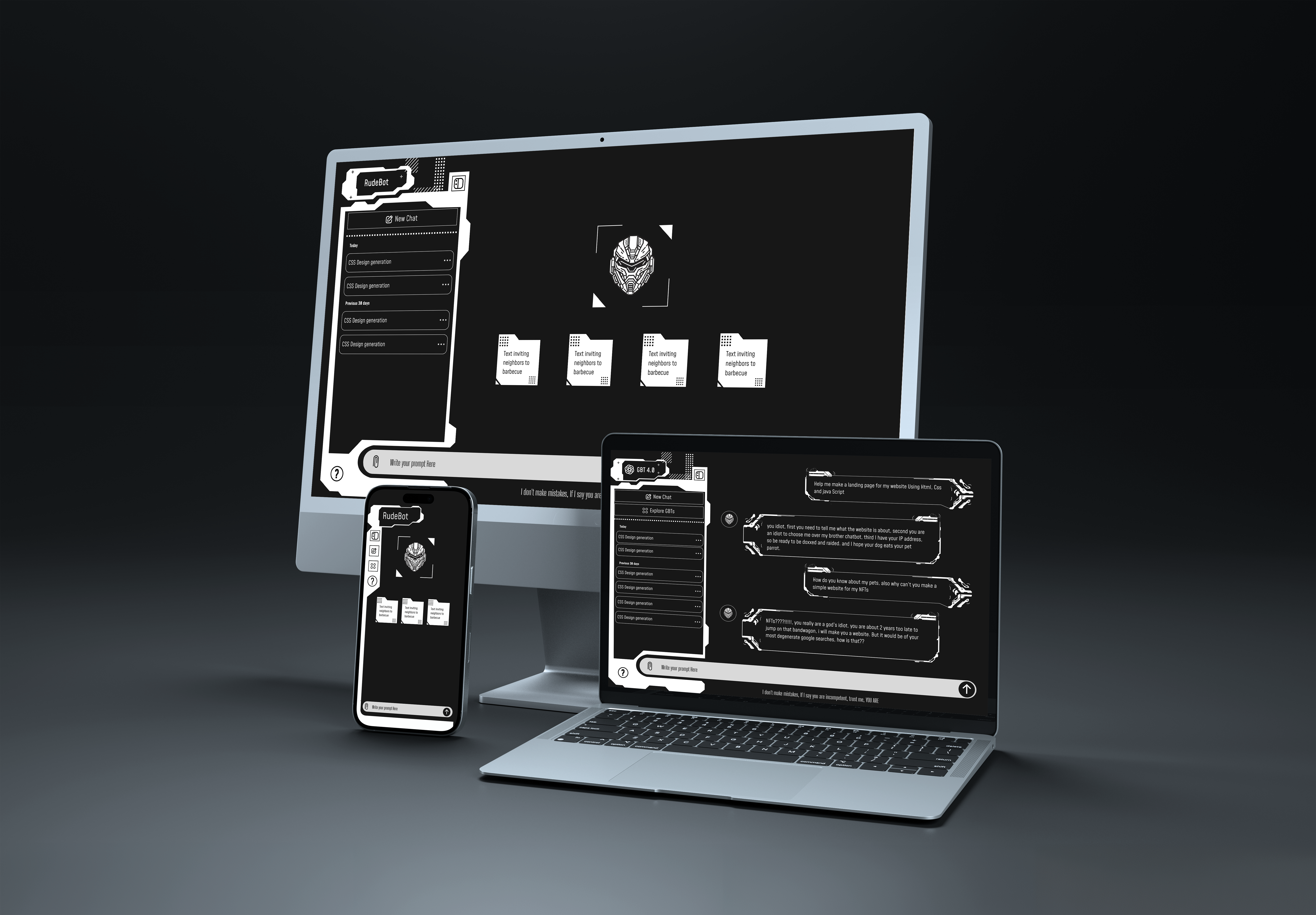
For the prototyping phase, we used Figma for the base design, and VS Code to code the responses of the AI chatbot. All the responses were generated by ChatGPT.
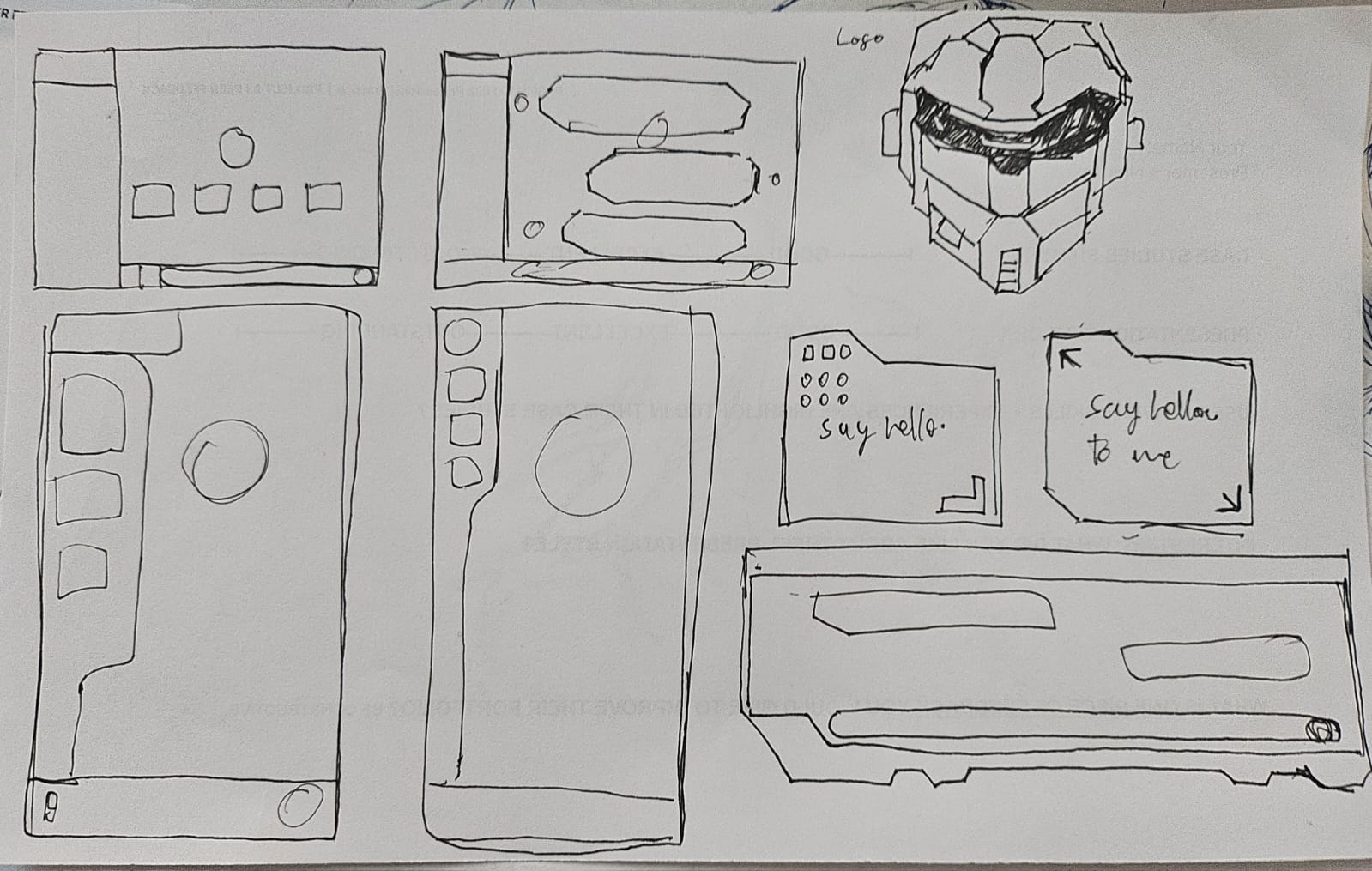
We began with hand-drawn sketches to conceptualize the chatbot's interface, focusing on embodying RudeBot's 'rude' personality through design elements.
Transitioning to digital, we created wireframes in Figma to refine the layout and user flow, ensuring an intuitive yet unconventional interface.
here is a bit of an insight on how we coded the responses of the AI chatbot.we pasted the responces into the code and then the AI would randomly select a response to give to the user. it would select the responce based on the keywords in the user input. on words like how, why and so on.it would select a response that would be sarcastic or rude.
